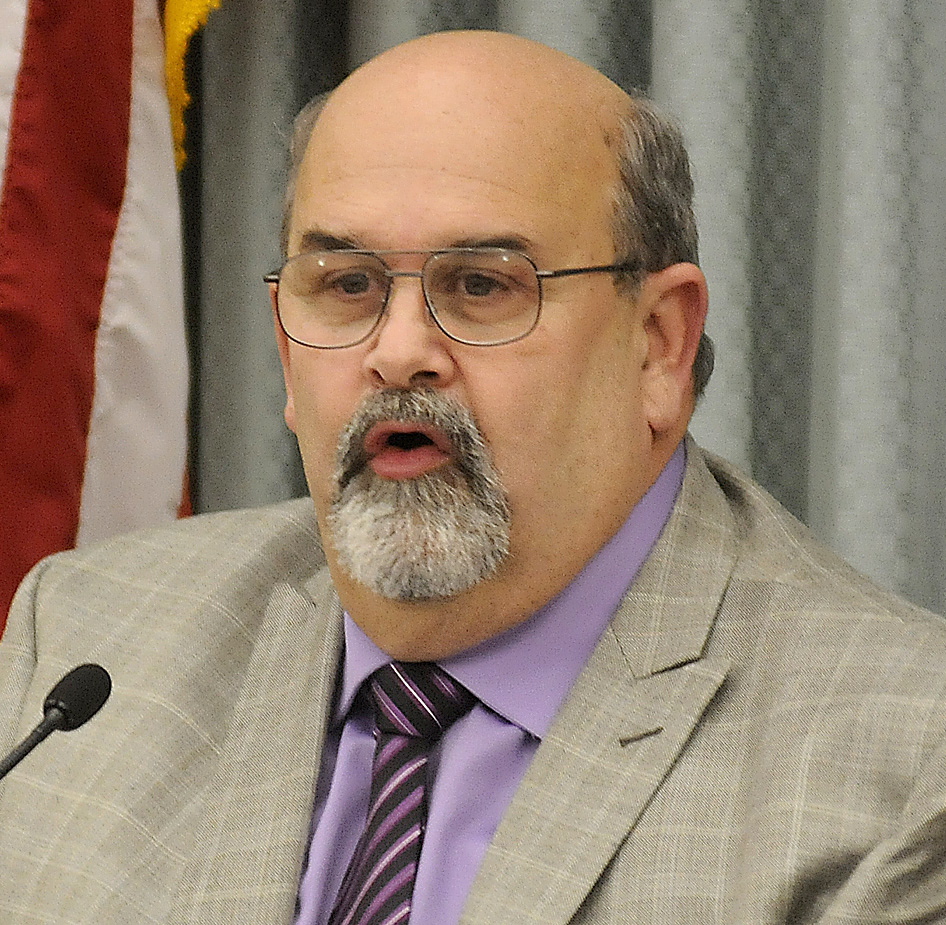AUGUSTA — City councilors are scheduled to meet Thursday to air concerns about the city’s potential $2.2 million loss of annual revenue and its effect on local property taxpayers, if all the changes in the governor’s proposed state budget pass as proposed.
Gov. Paul LePage’s budget proposes to eliminate state revenue sharing and change how some business equipment is taxed, which could add up to a big loss for the city, Augusta officials said.
City Manager William Bridgeo said he invited local legislators to participate in Thursday’s discussion, and at least some said they would attend. Councilors and legislators plan to meet at 6:30 p.m. in council chambers at Augusta City Center.
With few other revenue sources available to them and with local budgets already trimmed over the last several years of cost-cutting, the state cuts could have the biggest effect on property taxpayers, who’ll be asked to pick up more of the tax burden, city officials said.
“We don’t know how many (of the governor’s proposed changes) will come true, but even if a portion of them do, it’ll mean a major increase in property taxes or a reduction in services,” said Ralph St. Pierre, finance director and assistant city manager.
LePage has said municipalities should respond to the proposed decrease of state revenue sharing by cutting their spending, not increasing property taxes. But Mayor David Rollins and city councilors said the city already has cut its budget over the last several years, consolidating services and laying off city and school employees. Most local spending, they said, goes to core services such as plowing roads, paying police officers and running schools.
“It is insulting to the communities to suggest we’re not efficient, not good managers of the budget, that part of this can be paid for by towns not being reckless spenders,” Rollins said at a council discussion about the proposed state cuts last week. “We took our jobs very seriously and made many cuts and consolidations of services.”
St. Pierre said the proposed elimination of state revenue sharing alone would mean the loss of about $1 million in state revenue received by the city.
He also said proposed changes to how business equipment is taxed, making more items exempt from the tax, could cost the city hundreds of thousands of dollars a year in lost revenue.
A proposal to eliminate the homestead exemption for homeowners younger than 65, while doubling the homestead exemption to $20,000 for homeowners 65 and older, St. Pierre said, also would have the effect of increasing the property taxes of most homeowners younger than 65 in Augusta.
The governor’s plan also would allow municipalities to tax certain nonprofit organizations. His plan targets nonprofits with a property valuation of more than $500,000, which are now exempt from paying property taxes. The city would assess property taxes at 50 percent of the rate charged to for-profit entities.
If all of the changes contained in the proposed state budget pass, and the city covers the cost by increasing property taxes correspondingly, St. Pierre estimates the owner of a $125,000 home in Augusta would see his or her property taxes increase by $176, or 8 percent, if the homeowner is younger than 65. Property taxes of a homeowner 65 or older who takes advantage of the homestead exemption would decrease by $195, or 9 percent.
School officials in Augusta also recently learned that the school system would get about $1 million less in state funding next year under the proposed state budget, compared with what it received this year.
Before the start of that regular council meeting, councilors plan to meet from 5:30 to 6:30 p.m. to finalize their goals for the city for the coming year.
Councilors also are scheduled to discuss helping the Augusta Housing Authority seek $500,000 in federal housing assistance money to provide grants of up to $25,000 to landlords and low- and moderate-income residents to help rehabilitate and preserve existing multi-family rental properties in Augusta. Priority would be given to repairs correcting safety code violations, according to Amanda Bartlett, executive director of the housing authority.
Keith Edwards — 621-5647
kedwards@centralmaine.com
Twitter: @kedwardskj
Send questions/comments to the editors.




Comments are no longer available on this story